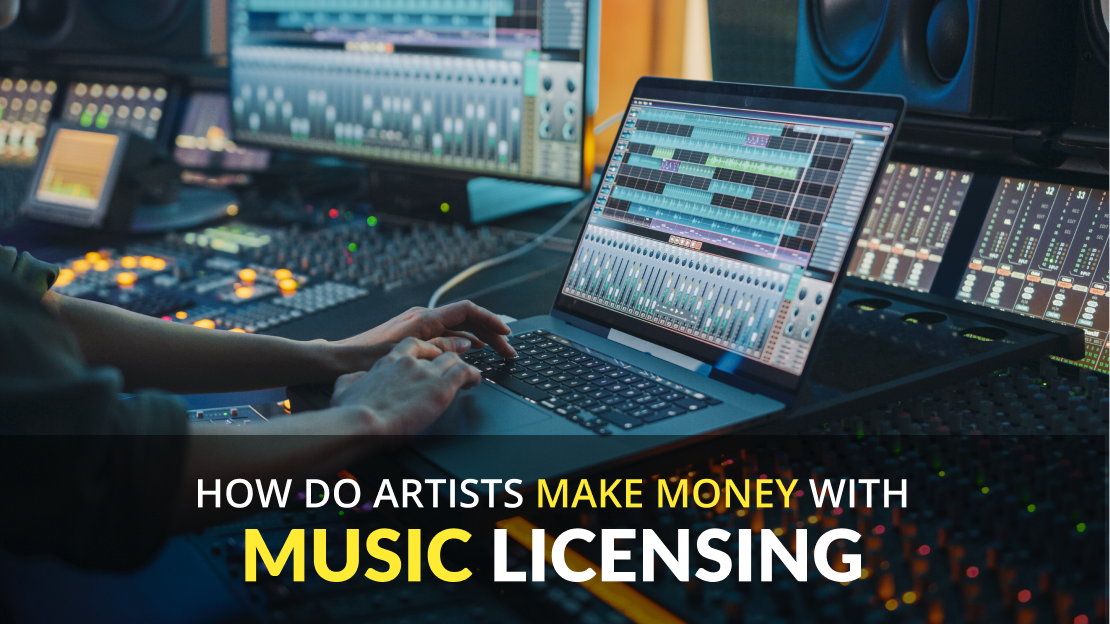How Do Artists Make Money With Music Licensing?
Let’s start with the basics – Knowing how artists make money with music licensing is crucial in developing a vital income stream for songwriters, composers, and producers. It involves an individual or business purchasing a license for the right to use copyrighted music. Here is a scenario that demonstrates it all:
If your friend is recording you on video, but you don’t want the footage on social media, just take out your phone and put on a good old Taylor Swift song as loudly as you can. Why?
Well, now there is a copyrighted song playing in the background. Your friend can’t legally upload the video without a license for that song unless they want to spend thousands.
As you may have guessed, there are different types of licenses. Each has its own unique set of benefits and characteristics. Here’s a rundown of the various ways artists make money through licensing:
1. Master License
A master license applies to purchasing the right to use the original recording (the “master”) of a song. This means the master license holder cannot re-record, cover, edit, publish, or distribute the song. Master licenses provide income to the owners of the original recordings while protecting the songs.
2. Mechanical License
Mechanical licenses are payments made to the creators of a song when it is reproduced in some form. This can include physical or digital formats, like vinyl, digital downloads, or streaming services.
Every time a physical or digital copy of a song is made, the songwriter and their publisher earn a mechanical royalty.
3. Print Rights License
Printing song lyrics might seem a bit old school nowadays. But hey, sometimes there’s nothing quite like holding a physical sheet of paper with those heartfelt words beautifully printed on it. And yes, if it’s something people tend to do with music, there is a type of license for it.
While less common today, songwriters can earn money from sheet music sales. This means that a license is needed to print the lyrics or melodies of a song.

4. Public Performance License
Artists earn performance royalties when venues obtain a public performance license. This allows the license holder to play music legally in public. The license could be for a live performance, a broadcast on the radio, a stream on Spotify, or even playing in a restaurant or bar.
Performing Rights Organizations (PROs) like ASCAP, BMI, and SESAC collect these royalties in the US and distribute them to songwriters and publishers.
5. Synchronization (Sync) Licensing
A sync license is needed when a song is used in sync with a visual medium, such as a movie, TV show, commercial, or video game. The licensee pays a fee, which is then split between the songwriter and the publisher. The fee can vary widely, from a few dollars to millions for popular songs in big-budget films.
As we advance through the digital world, so do our capabilities. AI is starting to take center stage in the music industry, providing a new way to experiment with and create unique melodies and songs. For seasoned professionals or those just starting out, AI music generation tools like Strofe are opening doors to creating music. Other alternative music-making tools such as Scraps Audio introduce innovative new methods for creating music.
So if you ever find yourself in the wild world of song licensing, buckle up and hold onto your musical notes tightly. Your song could hit the lottery, and Hollywood could come knocking on your door with a suitcase full of cash.

www.soundscape.io
Blog written by
Zach Norton
